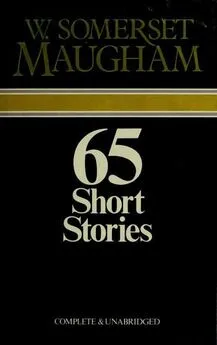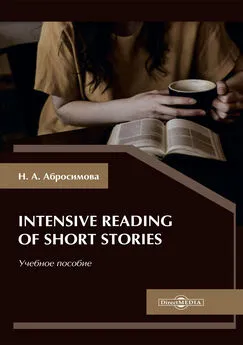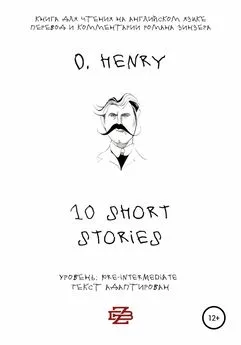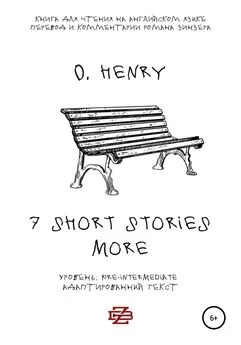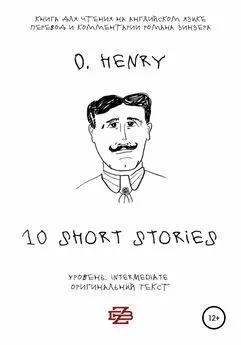Somerset Maugham - Sixty-Five Short Stories
- Название:Sixty-Five Short Stories
- Автор:
- Жанр:
- Издательство:неизвестно
- Год:неизвестен
- ISBN:нет данных
- Рейтинг:
- Избранное:Добавить в избранное
-
Отзывы:
-
Ваша оценка:
Somerset Maugham - Sixty-Five Short Stories краткое содержание
Sixty-Five Short Stories - читать онлайн бесплатно полную версию (весь текст целиком)
Интервал:
Закладка:
He went ashore at Djibouti and again at Colombo and Singapore, but though the ship stopped for two days at Saigon he remained on board there. He'd been drinking a good deal and he was feeling a bit under the weather. But when they reached Haiphong, where they were staying for forty-eight hours, he thought he might just as well have a look at it. That was the last stopping-place before they got to China. He was bound for Shanghai. When he got there he meant to go to a hotel and look around a bit and then get hold of a girl and a place of his own. He would buy a pony or two and race. He'd soon make friends. In the East they weren't so stiff and stand-offish as they were in London. Going ashore, he dined at the hotel and after dinner got into a rickshaw and told the boy he wanted a woman. The boy took him to the shabby tenement in which I had sat for so many hours and there were the old woman and the girl who was now the mother of his child. After a while the old woman asked him if he wouldn't like a smoke. He had never tried opium, he had always been frightened of it, but now he didn't see why he shouldn't have a go. He was feeling good that night and the girl was a jolly cuddlesome little thing; she was rather like a Chinese girl, small and pretty, like an idol. Well, he had a pipe or two, and he began to feel very happy and comfortable. He stayed all night. He didn't sleep. He just lay, feeling very restful, and thought about things.
'I stopped there till my ship went on to Hong-Kong,' he said. 'And when she left I just stopped on.'
'How about your luggage?' I asked.
For I am perhaps unworthily interested in the manner people combine practical details with the ideal aspects of life. When in a novel penniless lovers drive in a long, swift racing car over the distant hills I have always a desire to know how they managed to pay for it; and I have often asked myself how the characters of Henry James in the intervals of subtly examining their situation coped with the physiological necessities of their bodies.
'I only had a trunk full of clothes, I was never one to want much more than I stood up in, and I went down with the girl in a rickshaw to fetch it. I only meant to stay on till the next boat came through. You see, I was so near China here I thought I'd wait a bit and get used to things, if you understand what I mean, before I went on.'
I did. Those last words of his revealed him to me. I knew that on the threshold of China his courage had failed him. England had been such a terrible disappointment that now he was afraid to put China to the test too. If that failed him he had nothing. For years England had been like a mirage in the desert. But when he had yielded to the attraction, those shining pools and the palm trees and the green grass were nothing but the rolling sandy dunes. He had China, and so long as he never saw it again he kept it.
'Somehow I stayed on. You know, you'd be surprised how quickly the days pass. I don't seem to have time to do half the things I want to. After all I'm comfortable here. The old woman makes a damned good pipe, and she's a jolly little girl, my girl, and then there's the kid. A lively young beggar. If you're happy somewhere what's the good of going somewhere else?'
I looked round that large bare sordid room. There was no comfort in it and not one of the little personal things that one would have thought might have given him the feeling of home. Grosely had taken on this equivocal little apartment, which served as a house of assignation and as a place for Europeans to smoke opium in, with the old woman who kept it, just as it was, and he camped, rather than lived, there still as though next day he would pack his traps and go. After a little while he answered my question.
'I've never been so happy in my life. I often think I'll go on to Shanghai some day, but I don't suppose I ever shall. And God knows, I never want to see England again.'
'Aren't you awfully lonely sometimes for people to talk to?'
'No. Sometimes a Chinese tramp comes in with an English skipper or a Scotch engineer, and then I go on board and we have a talk about old times. There's an old fellow here, a Frenchman who was in the Customs, and he speaks English; I go and see him sometimes. But the fact is I don't want anybody very much. I think a lot. It gets on my nerves when people come between me and my thoughts. I'm not a big smoker, you know, I just have a pipe or two in the morning to settle my stomach, but I don't really smoke till night. Then I think.'
'What d'you think about?'
'Oh, all sorts of things. Sometimes about London and what it was like when I was a boy. But mostly about China. I think of the good times I had and the way I made my money, and I remember the fellows I used to know, and the Chinese. I had some narrow squeaks now and then, but I always came through all right. And I wonder what the girls would have been like that I might have had. Pretty little things. I'm sorry now I didn't keep one or two. It's a great country, China; I love those shops, with an old fellow sitting on his heels smoking a water-pipe, and all the shop-signs. And the temples. By George, that's the place for a man to live in. There's life.'
The mirage shone before his eyes. The illusion held him. He was happy. I wondered what would be his end. Well, that was not yet. For the first time in his life perhaps he held the present in his hand.
The Letter
Outside on the quay the sun beat fiercely. A stream of motors, lorries and buses, private cars and hirelings, sped up and down the crowded thoroughfare, and every chauffeur blew his horn; rickshaws threaded their nimble path amid the throng, and the panting coolies found breath to yell at one another; coolies, carrying heavy bales, sidled along with their quick jog-trot and shouted to the passer-by to make way; itinerant vendors proclaimed their wares. Singapore is the meeting-place of a hundred peoples; and men of all colours, black Tamils, yellow Chinks, brown Malays, Armenians, Jews, and Bengalis, called to one another in raucous tones. But inside the office of Messrs Ripley, Joyce, and Naylor it was pleasantly cool; it was dark after the dusty glitter of the street and agreeably quiet after its unceasing din. Mr Joyce sat in his private room, at the table, with an electric fan turned full on him. He was leaning back, his elbows on the arms of the chair, with the tips of the outstretched fingers of one hand resting neatly against the tips of the outstretched fingers of the other. His gaze rested on the battered volumes of the Law Reports which stood on a long shelf in front of him. On the top of a cupboard were square boxes of japanned tin, on which were painted the names of various clients.
There was a knock at the door.
'Come in.'
A Chinese clerk, very neat in his white ducks, opened it.
'Mr Crosbie is here, sir.'
He spoke beautiful English, accenting each word with precision, and Mr Joyce had often wondered at the extent of his vocabulary. Ong Chi Seng was a Cantonese, and he had studied law at Gray's Inn. He was spending a year or two with Messrs Ripley, Joyce, and Naylor in order to prepare himself for practice on his own account. He was industrious, obliging, and of exemplary character.
'Show him in,' said Mr Joyce.
He rose to shake hands with his visitor and asked him to sit down. The light fell on him as he did so. The face of Mr Joyce remained in shadow. He was by nature a silent man, and now he looked at Robert Crosbie for quite a minute without speaking. Crosbie was a big fellow, well over six feet high, with broad shoulders, and muscular. He was a rubber-planter, hard with the constant exercise of walking over the estate, and with the tennis which was his relaxation when the day's work was over. He was deeply sunburned. His hairy hands, his feet in clumsy boots were enormous, and Mr Joyce found himself thinking that a blow of that great fist could easily kill the fragile Tamil. But there was no fierceness in his blue eyes; they were confiding and gentle; and his face, with its big, undistinguished features, was open, frank, and honest. But at this moment it bore a look of deep distress. It was drawn and haggard.
'You look as though you hadn't had much sleep the last night or two,' said Mr Joyce.
'I haven't.'
Mr Joyce noticed now the old felt hat, with its broad double brim, which Crosbie had placed on the table; and then his eyes travelled to the khaki shorts he wore, showing his red hairy thighs, the tennis shirt open at the neck, without a tie, and the dirty khaki jacket with the ends of the sleeves turned up. He looked as though he had just come in from a long tramp among the rubber trees. Mr Joyce gave a slight frown.
'You must pull yourself together, you know. You must keep your head.'
'Oh, I'm all right.'
'Have you seen your wife today?'
'No, I'm to see her this afternoon. You know, it is a damned shame that they should have arrested her.'
'I think they had to do that,' Mr Joyce answered in his level, soft tone. 'I should have thought they'd have let her out on bail.'
'It's a very serious charge.'
'It is damnable. She did what any decent woman would do in her place. Only, nine women out of ten wouldn't have the pluck. Leslie's the best woman in the world. She wouldn't hurt a fly. Why, hang it all, man, I've been married to her for twelve years, do you think I don't know her? God, if I'd got hold of the man I'd have wrung his neck, I'd have killed him without a moment's hesitation. So would you.'
'My dear fellow, everybody's on your side. No one has a good word to say for Hammond. We're going to get her off. I don't suppose either the assessors or the judge will go into court without having already made up their minds to bring in a verdict of not guilty.'
'The whole thing's a farce,' said Crosbie violently. 'She ought never to have been arrested in the first place, and then it's terrible, after all the poor girl's gone through, to subject her to the ordeal of a trial. There's not a soul I've met since I've been in Singapore, man or woman, who hasn't told me that Leslie was absolutely justified. I think it's awful to keep her in prison all these weeks.'
'The law is the law. After all, she confesses that she killed the man. It is terrible, and I'm dreadfully sorry for both you and her.'
'I don't matter a hang,' interrupted Crosbie.
'But the fact remains that murder has been committed, and in a civilized community a trial is inevitable.'
'Is it murder to exterminate noxious vermin? She shot him as she would have shot a mad dog.'
Mr Joyce leaned back again in his chair and once more placed the tips of his ten fingers together. The little construction he formed looked like the skeleton of a roof. He was silent for a moment.
'I should be wanting in my duty as your legal adviser,' he said at last, in an even voice, looking at his client with his cool, brown eyes, 'if I did not tell you that there is one point which causes me just a little anxiety. If your wife had only shot Hammond once, the whole thing would be absolutely plain sailing. Unfortunately she fired six times.'
'Her explanation is perfectly simple. In the circumstances anyone would have done the same.'
'I dare say,' said Mr Joyce, 'and of course I think the explanation is very reasonable. But it's no good closing our eyes to the facts. It's always a good plan to put yourself in another man's place, and I can't deny that if I were prosecuting for the Crown that is the point on which I should centre my inquiry.'
'My dear fellow, that's perfectly idiotic'
Mr Joyce shot a sharp glance at Robert Crosbie. The shadow of a smile hovered over his shapely lips. Crosbie was a good fellow, but he could hardly be described as intelligent.
Читать дальшеИнтервал:
Закладка:
